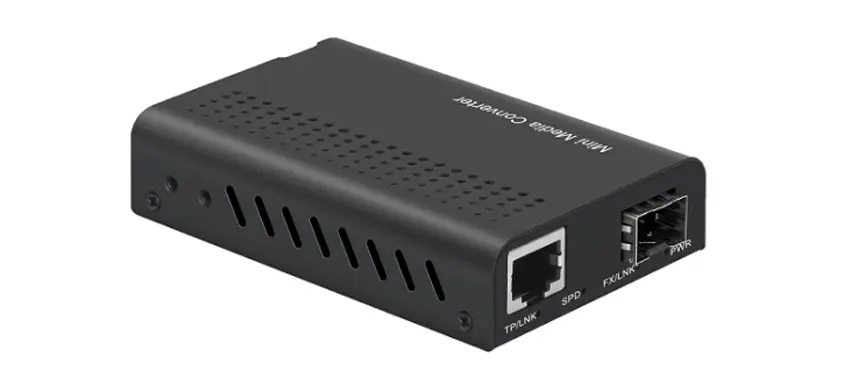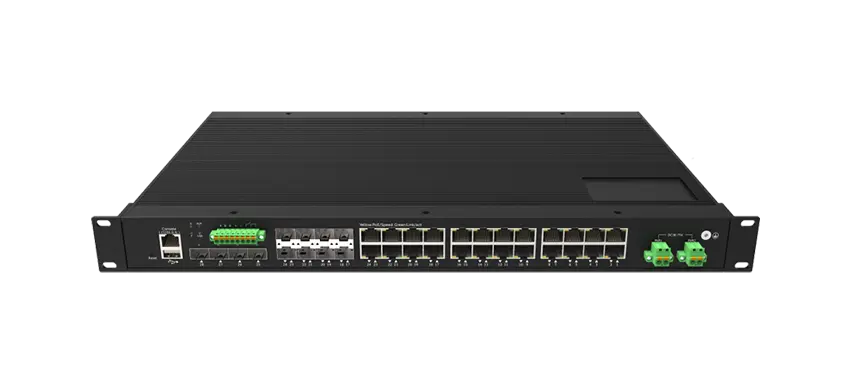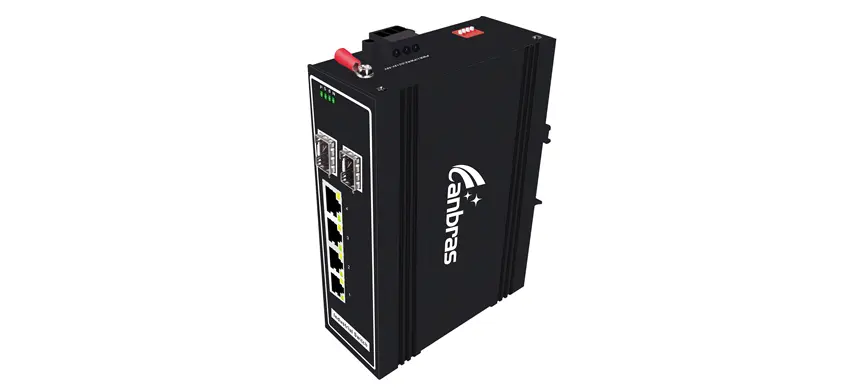The digital age has transformed the way industrial processes and operations are managed, and at the heart of this transformation are robust and reliable networking devices. While many businesses rely on consumer-grade routers for their connectivity needs, industrial facilities require something much more durable and versatile to operate in challenging environments. Enter the industrial router—the workhorse of industrial-grade connectivity.
In this guide, we'll explore what an industrial-grade router is, its features, applications, and how it plays a critical role in today's connected industries.
What is an Industrial Grade Router?
An industrial router is a specialized networking device designed to provide reliable and secure connectivity in harsh and demanding environments. Unlike consumer-grade routers, which operate in temperature-controlled and stable settings, industrial routers excel in environments where extreme conditions, such as high vibrations, excessive dust, and extreme temperatures, are the norm.
Industrial routers are specifically engineered to connect industrial networks and devices, often supporting advanced features such as cellular connectivity (3G/4G/5G), redundancy, IoT protocol compatibility, and strong cybersecurity measures.
How is it Different from a Consumer Router?
Industrial routers are built with durability and performance in mind. Here's how they stand out:
Durability & Longevity: Industrial routers are designed with reinforced components to withstand heat, cold, and other harmful conditions.
Multiple Connectivity Options: From Ethernet ports to 5G and IoT-specific protocols, they enable seamless connectivity across various mediums.
Industrial-Grade Certifications: Many routers comply with certifications for industry-specific safety and reliability standards (e.g., ATEX for explosive environments).
Designed for IoT: They're central to Industrial IoT (IIoT) ecosystems, connecting machines, sensors, and systems in real-time.

Key Features of Industrial Routers
When exploring industrial routers, it’s crucial to understand the robust capabilities that set them apart. Here are their key features:
1. Rugged Design
Industrial routers are built to operate in extreme conditions. From mining facilities to oil rigs, their rugged casings and hardware endure wear and tear with ease.
2. Wide Operating Temperature Range
Unlike standard routers, which often fail in extreme climates, industrial routers function reliably even in temperatures ranging from -40°C to 85°C.
3. Advanced Connectivity Options
Industrial routers accommodate diverse networking needs with options including:
Ethernet LAN/WAN ports for wired connections.
Cellular connectivity (3G, 4G, 5G) for remote or mobile setups.
IoT Standards like LoRa, Zigbee, and NB-IoT.
4. High Security
To ensure that industrial networks remain safe from cyberattacks, industrial routers offer:
5. Remote Management and Scalability
Industrial routers often include remote management capabilities through specialized platforms, enabling administrators to troubleshoot and monitor devices without being onsite. These routers are designed to scale with growing IoT deployments.
Applications of Industrial Routers
Industrial routers play a vital role in enabling connectivity across a wide range of industries. Let’s explore the industries where industrial routers shine:
1. Smart Manufacturing
Manufacturers rely on industrial routers to connect machines, IoT sensors, and control systems, ensuring the real-time transfer of critical production data. This connectivity also supports predictive maintenance—reducing machine downtime and boosting efficiency.
2. Utilities and Energy
From monitoring power grids to managing pipelines, industrial routers provide remote connectivity in energy-critical settings. For example, wind farms use industrial-grade routers to communicate operational data from each turbine to centralized platforms in real time.
3. Transportation and Logistics
Fleet management, supply chain optimization, and vehicle-to-infrastructure communications rely on industrial routers for navigation, GPS tracking, and telematics.
4. Smart Cities
Industrial routers are the backbone of smart city networks, enabling secure and reliable connectivity for automated traffic systems, public Wi-Fi, environmental monitoring, and surveillance systems.
Benefits of Industrial Routers
Why should industries invest in industrial-grade routers? Here are the top benefits:
Improved Network Reliability
Industrial routers ensure strong, stable connections, even in rugged settings with intermittent connectivity.
Enhanced Security
Their advanced security layers protect industrial systems from cyber threats—a critical need in today’s cybersecurity landscape.
Operational Efficiency
By connecting machines, sensors, and operations, industrial routers simplify data sharing—empowering industries with insights for smarter decision-making.
High ROI & Longevity
Although they come at a higher upfront cost compared to consumer routers, industrial routers provide significant returns through long lifespans and reduced downtime costs.
How to Choose the Right Industrial Router
When selecting an industrial router, businesses should assess their specific needs. Here are some guidelines:
Assess Environmental Conditions
Evaluate Connectivity Requirements
Prioritize Cybersecurity
Consider Future Needs
Future Trends in Industrial Networking
As industrial operations continue to embrace digital transformation, routers will play an increasingly pivotal role. Here are some key trends to watch:
5G Integration
Industrial routers will increasingly leverage 5G to enable ultra-reliable, low-latency connections for mission-critical applications.
Edge Computing
The rise of edge computing will require industrial routers to process data closer to devices, minimizing latency and improving efficiency.
Enhanced Cybersecurity
Rising cyber threats in industries will drive manufacturers to design routers with advanced AI-driven threat detection systems.
Artificial Intelligence and IoT
Expect industrial routers to integrate machine learning algorithms to optimize network performance automatically and support complex IoT ecosystems.
Frequently Asked Questions (FAQs)
What sets an industrial router apart from a consumer router?
Industrial routers are designed for durability, scalability, and connectivity in extreme conditions, while consumer routers are for general use in home or office settings.
How do industrial routers support IoT applications?
Industrial routers enable secure and stable communication for connected devices, often supporting protocols like LoRaWAN or Zigbee for IoT applications.
Are industrial routers compatible with 5G networks?
Many modern industrial routers support 5G connectivity, making them ideal for future-ready industrial setups.
Conclusion
The industrial router is more than just a networking tool—it's a cornerstone of modern industrial connectivity. By enabling secure, reliable communication across machines and systems, industrial routers empower businesses to innovate and adapt in an increasingly connected world.
When it comes to sourcing reliable, high-performance industrial routers, Lanbras stands out as a trusted industrial router supplier. With their diverse range of solutions and expertise in the field, they are well-equipped to meet the needs of any industry.
Contact Lanbras today to explore their range of industrial routers and find the perfect fit for your operations!
By Jennifer Tseng
Hi, I'm Jennifer, Marketing Executive at lanaotek.com.
I specialize in translating cutting-edge optical and Ethernet transmission technologies into clear, valuable insights that help our customers stay ahead in a fast-evolving digital world.
By turning complex technical concepts into practical, business-driven content, I aim to empower decision-makers with the knowledge they need to make confident, future-ready choices.
 Internet Data Center
Internet Data Center FAQs
FAQs Industry News
Industry News About Us
About Us Data Center Switch
Data Center Switch  Enterprise Switch
Enterprise Switch  Industrial Switch
Industrial Switch  Access Switch
Access Switch  Integrated Network
Integrated Network  Optical Module & Cable
Optical Module & Cable 









 Call us on:
Call us on:  Email Us:
Email Us:  2106B, #3D, Cloud Park Phase 1, Bantian, Longgang, Shenzhen, 518129, P.R.C.
2106B, #3D, Cloud Park Phase 1, Bantian, Longgang, Shenzhen, 518129, P.R.C.